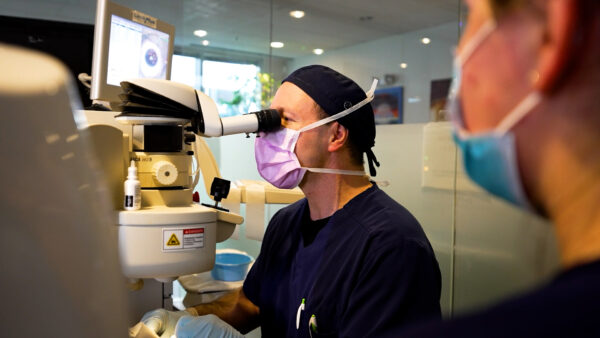PRK Eye Surgery: A Clearer Vision for Life
Are you tired of the constant hassle of glasses or contact lenses? PRK (Photorefractive Keratectomy) laser eye surgery could be the solution you’ve been searching for. Let’s explore the benefits, process, and candidacy for this effective vision correction procedure.
What is PRK Eye Surgery?
PRK is a laser eye surgery that reshapes the cornea to correct vision problems like nearsightedness, farsightedness, and astigmatism. Unlike LASIK, PRK doesn’t create a corneal flap. Instead, the outer layer of the cornea is removed before the laser is applied.
PRK vs. LASIK: Which is Right for You?
While both PRK and LASIK are effective vision correction procedures, they have different advantages. PRK may be a better option for individuals with:
- Thin corneas
- Dry eye syndrome
- Active lifestyles with a higher risk of eye injury
Ultimately, the best choice between PRK and LASIK depends on your individual eye health and lifestyle. Our experienced laser eye surgeons can help you determine the most suitable option.
The PRK Procedure
The PRK procedure is typically performed on an outpatient basis and takes about 15 minutes per eye. Here’s a general overview:
- Pre-operative Evaluation: A comprehensive eye exam is conducted to assess your candidacy and determine the appropriate treatment plan.
- Surgery: A laser is used to reshape the cornea, correcting your vision.
- Recovery: A bandage contact lens is placed on the eye to aid healing. Vision improvement occurs gradually over several weeks.
PRK Recovery and Aftercare
PRK recovery time is generally longer than LASIK, but it’s still a relatively quick process. You can expect some discomfort, dryness, and blurry vision initially. Regular follow-up appointments are essential to monitor healing and ensure optimal results.
Schedule Your PRK Consultation Today
Ready to experience the freedom of clear vision? Contact The LASIK Vision Institute to schedule your free PRK consultation. Our expert team will provide personalized guidance and answer all your questions.

Find a LASIK Surgery Location Near You
We’re located nationwide – it’s easy to find a LASIK Vision Center near you.
Categories:



